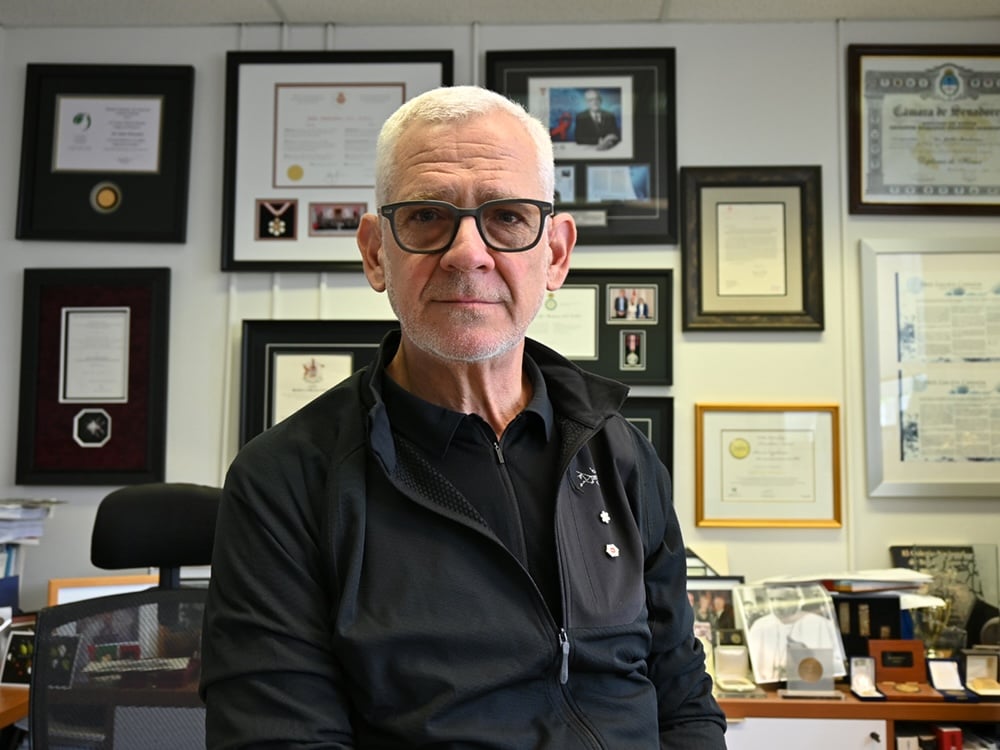Health
Canada Steps Up as US Reduces Commitment to Global HIV Fight

The United States is significantly reducing its commitment to the global fight against HIV/AIDS, prompting calls for Canada to strengthen its efforts in this critical area. This shift, particularly evident as funding and resources dwindle, raises concerns about the future of HIV prevention and treatment worldwide. Local experts emphasize that British Columbia’s innovative approach could serve as a vital model for other regions.
Dr. Mark Tyndall, a leading researcher based in British Columbia, argues that the province’s strategies have proven effective in curbing HIV transmission and improving health outcomes. He noted that while the US government’s decision to withdraw support could hinder global efforts, Canada has the opportunity to fill the gap and lead by example.
British Columbia’s Model: A Path Forward
British Columbia has seen a notable decline in new HIV infections, thanks in part to comprehensive healthcare policies and community-based initiatives. The province has invested in harm reduction services, such as supervised consumption sites and widespread access to antiretroviral therapy. These efforts have not only saved lives but have also provided a blueprint for effective public health interventions.
According to the World Health Organization, approximately 38 million people are living with HIV globally, with significant disparities in access to treatment and prevention. The decline in US support may exacerbate these inequalities, particularly in low-income countries. Dr. Tyndall believes that Canada can leverage its resources and expertise to assist those most affected.
A Call for Leadership and Collaboration
As the global health community reassesses its strategies in light of the US’s reduced involvement, Canadian officials are being urged to take a proactive stance. The Canadian government has committed to maintaining its funding for HIV/AIDS initiatives, but advocates are pushing for increased investments and a more unified approach across provinces.
Dr. Tyndall highlights the importance of collaboration between federal and provincial governments, as well as partnerships with community organizations. He argues that a coordinated response is essential to address the multifaceted challenges posed by HIV/AIDS.
The Joint United Nations Programme on HIV/AIDS (UNAIDS) has set ambitious targets for 2025, aiming to end the AIDS epidemic as a public health threat by 2030. Achieving these goals requires sustained political will and increased funding. Canada’s commitment to enhancing its role in the global response could be pivotal in achieving these objectives.
Dr. Tyndall’s research underscores the urgent need for effective interventions that prioritize marginalized populations, including Indigenous communities and people who use drugs. He argues that British Columbia’s model not only addresses health disparities but also promotes social justice.
In conclusion, as the United States steps back from its leadership role in the global HIV fight, Canada stands at a crossroads. By adopting and expanding upon British Columbia’s successful strategies, Canada can play a crucial role in combating HIV/AIDS and ensuring equitable access to care for all. The health and well-being of millions depend on the actions taken today.
-

 Politics4 weeks ago
Politics4 weeks agoSecwepemc First Nation Seeks Aboriginal Title Over Kamloops Area
-

 World5 months ago
World5 months agoScientists Unearth Ancient Antarctic Ice to Unlock Climate Secrets
-

 Entertainment5 months ago
Entertainment5 months agoTrump and McCormick to Announce $70 Billion Energy Investments
-

 Science5 months ago
Science5 months agoFour Astronauts Return to Earth After International Space Station Mission
-

 Lifestyle5 months ago
Lifestyle5 months agoTransLink Launches Food Truck Program to Boost Revenue in Vancouver
-

 Technology3 months ago
Technology3 months agoApple Notes Enhances Functionality with Markdown Support in macOS 26
-

 Lifestyle3 months ago
Lifestyle3 months agoManitoba’s Burger Champion Shines Again Amid Dining Innovations
-

 Top Stories2 months ago
Top Stories2 months agoUrgent Update: Fatal Crash on Highway 99 Claims Life of Pitt Meadows Man
-

 Politics4 months ago
Politics4 months agoUkrainian Tennis Star Elina Svitolina Faces Death Threats Online
-

 Sports5 months ago
Sports5 months agoSearch Underway for Missing Hunter Amid Hokkaido Bear Emergency
-

 Politics5 months ago
Politics5 months agoCarney Engages First Nations Leaders at Development Law Summit
-

 Technology5 months ago
Technology5 months agoFrosthaven Launches Early Access on July 31, 2025




















